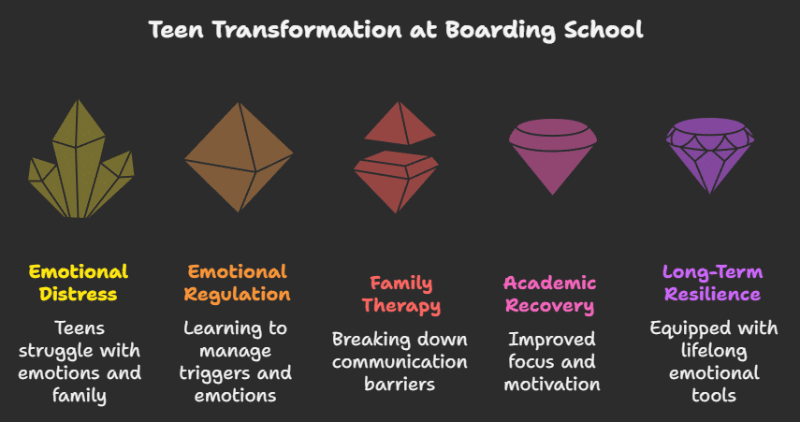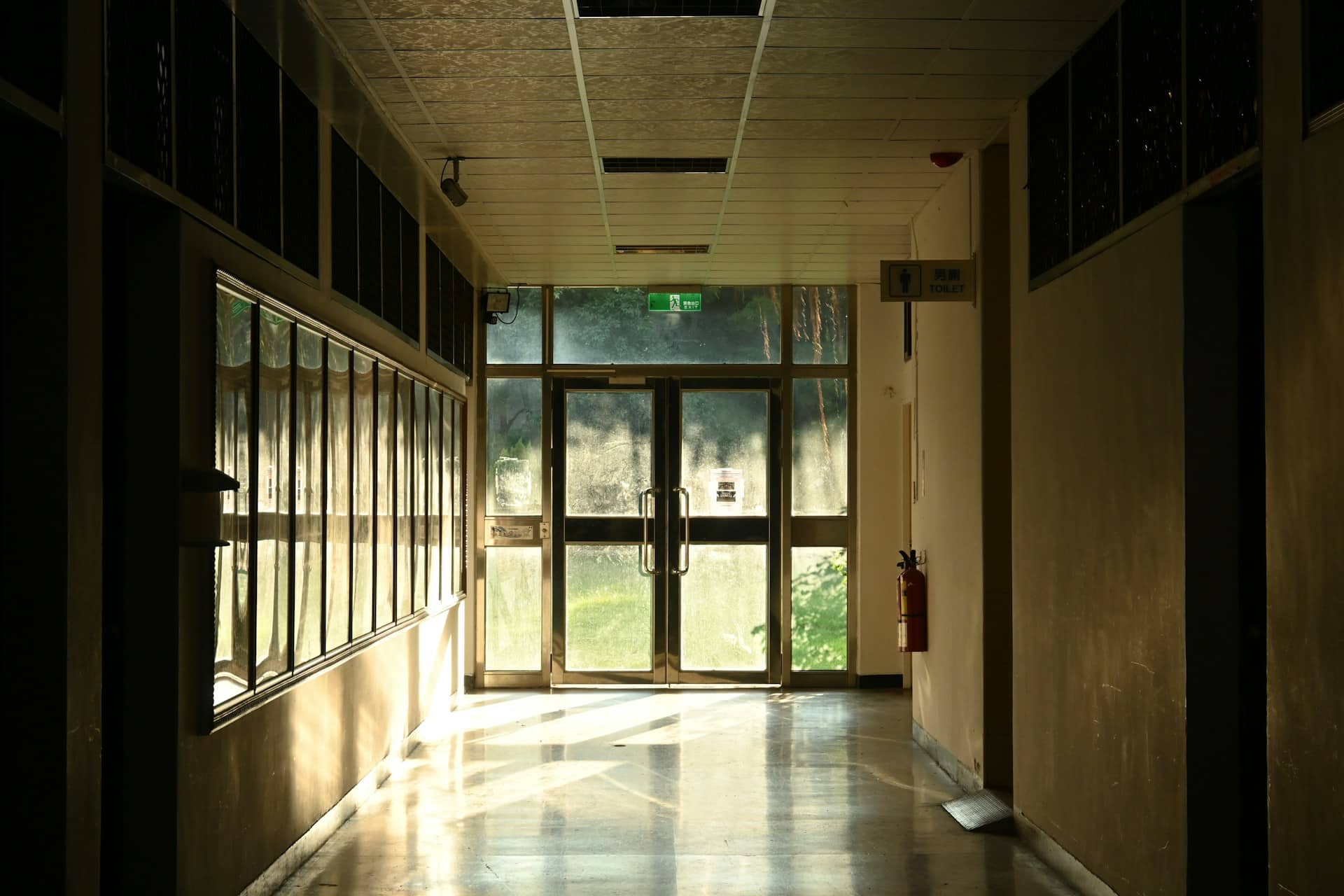At the core of every successful Therapeutic Boarding School for Troubled Teens is one essential element — licensed therapists. These professionals form the foundation of the program’s emotional and psychological support system.
Parents often ask: “What exactly do therapists do in these schools, and how do they help teens make real progress?”
The answer is simple yet powerful — licensed therapists bridge the gap between education, emotional healing, and personal growth. Their expertise allows schools to address not just behavior, but the deeper emotional and mental health challenges behind it.
Key Takeaways
- Licensed therapists are the backbone of Therapeutic Boarding Schools for Troubled Teens.
- They diagnose emotional challenges, deliver therapy, and ensure ethical treatment.
- Common therapies include CBT, DBT, family therapy, and group sessions.
- Collaboration between educators and therapists creates well-rounded healing.
- Parents should verify therapist credentials and school accreditation.
- Continued therapy through transitional programs promotes lasting success.
Why Licensed Therapists Are Essential
Unlike traditional boarding schools, Therapeutic Boarding Schools for Troubled Teens are specifically designed for adolescents dealing with emotional distress, behavioral struggles, trauma, or mental health disorders.
Here’s why licensed therapists play such a vital role:
- They identify root causes. Many teens act out due to underlying issues such as depression, anxiety, ADHD, or trauma. Therapists are trained to uncover these hidden struggles through assessments and consistent one-on-one sessions.
- They develop individualized treatment plans. Every student receives a tailored plan that addresses their emotional, academic, and social needs — often integrating cognitive-behavioral therapy (CBT), dialectical behavior therapy (DBT), or family therapy.
- They ensure ethical and professional care. Licensed therapists follow state regulations, maintain confidentiality, and work under evidence-based practices to ensure the best outcomes.
Without trained therapists, a program may lack the structure and credibility necessary to help teens achieve lasting change.
Types of Therapy Offered at Therapeutic Boarding Schools
Different therapeutic boarding schools may specialize in various evidence-based modalities. Below are some of the most common and effective approaches:
| Therapy Type | Purpose | Ideal For |
|---|---|---|
| Individual Therapy | Helps teens explore personal challenges privately and set goals for recovery. | Anxiety, trauma, depression |
| Group Therapy | Encourages communication, empathy, and peer accountability. | Behavioral issues, social anxiety |
| Family Therapy | Rebuilds parent-teen relationships and improves communication patterns. | Family conflict, trust rebuilding |
| Cognitive-Behavioral Therapy (CBT) | Teaches positive coping mechanisms and reframes negative thought patterns. | Depression, self-esteem issues |
| Dialectical Behavior Therapy (DBT) | Builds mindfulness, emotion regulation, and distress tolerance. | Impulsivity, emotional dysregulation |
Most schools combine multiple modalities to create a comprehensive therapeutic environment that promotes both healing and personal growth.
The Collaboration Between Therapists and Educators
Therapeutic boarding schools are unique because they blend clinical therapy with academics. Licensed therapists work closely with teachers, counselors, and residential staff to ensure consistency and support in every aspect of a teen’s day.
- Academic Support: Therapists communicate with teachers to accommodate emotional or behavioral challenges that might affect classroom performance.
- Crisis Intervention: If a student experiences a breakdown or anxiety episode, on-site therapists provide immediate stabilization.
- Goal Alignment: Therapists align emotional recovery goals with academic progress to ensure students move forward holistically.
This integrated approach ensures that therapy isn’t confined to the counselor’s office — it’s woven into daily life, helping teens practice new skills in real-world settings.
The Difference Licensed Therapists Make
Therapeutic boarding schools that employ licensed, experienced therapists offer measurable benefits for both teens and families.
1. Improved Emotional Regulation
Teens learn to recognize triggers, manage emotions, and develop healthy coping strategies.
2. Repaired Family Relationships
Through guided family therapy sessions, communication barriers begin to break down, helping parents and teens reconnect.
3. Academic Recovery
As emotional stability improves, so does focus and academic engagement. Licensed therapists help students rediscover motivation and confidence in their abilities.
4. Long-Term Resilience
Beyond graduation, students leave equipped with lifelong emotional tools to face challenges — from college to adult life.

The Importance of Licensing and Accreditation
When evaluating Therapeutic Boarding Schools for Troubled Teens, families should verify that therapists are:
- Licensed by the state (e.g., LMFT, LCSW, LPC, or Ph.D.)
- Experienced in adolescent mental health
- Trained in evidence-based therapeutic methods
- Supervised under accredited programs
In Utah and across the U.S., licensing ensures that therapists meet professional standards and that treatment methods are safe, ethical, and effective.
Always ask: Who are the therapists, and what credentials do they hold? The quality of a program depends heavily on the experience of its clinical team.
Connection to Transitional and “Failure to Launch” Programs
After completing a therapeutic boarding program, some teens benefit from young adult transitional programs or failure to launch programs. These help bridge the gap between structured care and independent living.
Licensed therapists often continue to guide these young adults through:
- Emotional adjustment after returning home
- Managing anxiety or depression during college transition
- Building confidence and self-sufficiency
- Strengthening family relationships during reintegration
This ongoing care ensures that progress made in treatment becomes sustainable growth in everyday life.
Conclusion: Healing Starts with Professional Guidance
When families choose a Therapeutic Boarding School for Troubled Teens, they’re not just selecting an academic institution — they’re choosing a healing environment led by licensed professionals who understand the complexity of adolescent growth.
These therapists play a transformative role in helping teens rediscover confidence, repair relationships, and prepare for adulthood.
If you’re exploring options for your teen, professional guidance is just a call away.
Contact Help Your Teen Now to help your teen now. Our team can connect you with accredited programs, licensed therapists, and supportive environments where your child can truly heal and thrive.






0 Comments